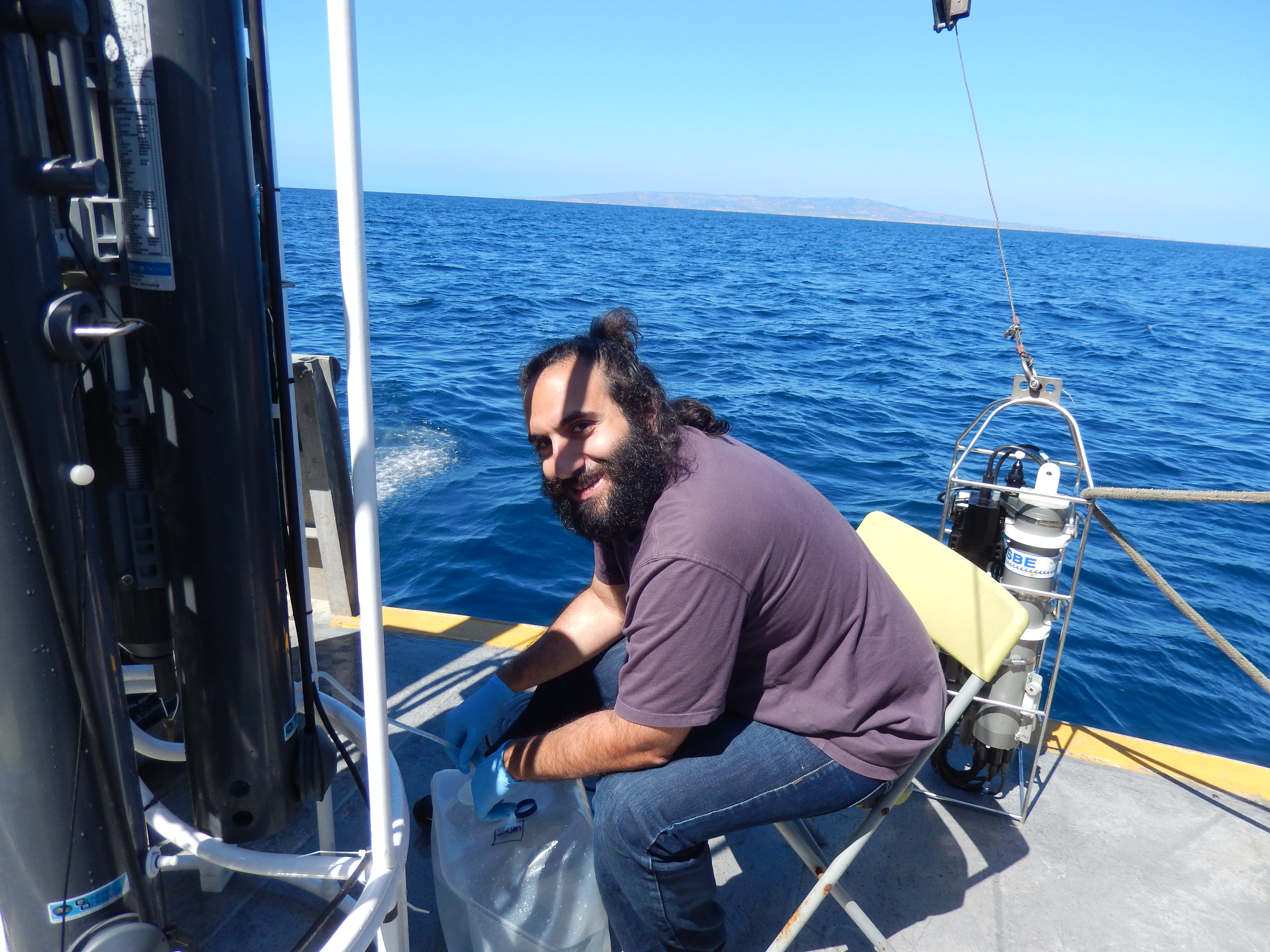The Spring 2023 Biology Seminar Series continues with a talk from Babak Hassanzadeh, "Rhodopsin phototrophy in the coastal upwelling region of the Southern California Bight."
The sun is the ultimate source of energy for almost all forms of life on Earth, with about half of global primary productivity occurring in marine systems. While chlorophyll-based photosystems have been studied since the 19th century, the presence of rhodopsin (retinal-based) light harvesting complexes in marine environments was not known until the year 2000. Microbial rhodopsins are simple light-driven ion-pumps present in greater than 80% of the bacteria in the ocean’s photic zone and appear in all three domains of microbial life. I will present work on the distribution and synthesis regulation of microbial rhodopsins from a 15-month sampling period in the Southern California Bight. These findings provide clear evidence for the importance of microbial rhodopsins as a key light-harvesting mechanism in productive coastal areas of the ocean. As the ocean’s oligotrophic areas are predicted to expand due to global change, there may be a shift in the pigment profile of the microbial community towards increasing concentrations of rhodopsins. Understanding the fate of carbon under this climate change scenario will be essential to obtain more accurate predictive models.

